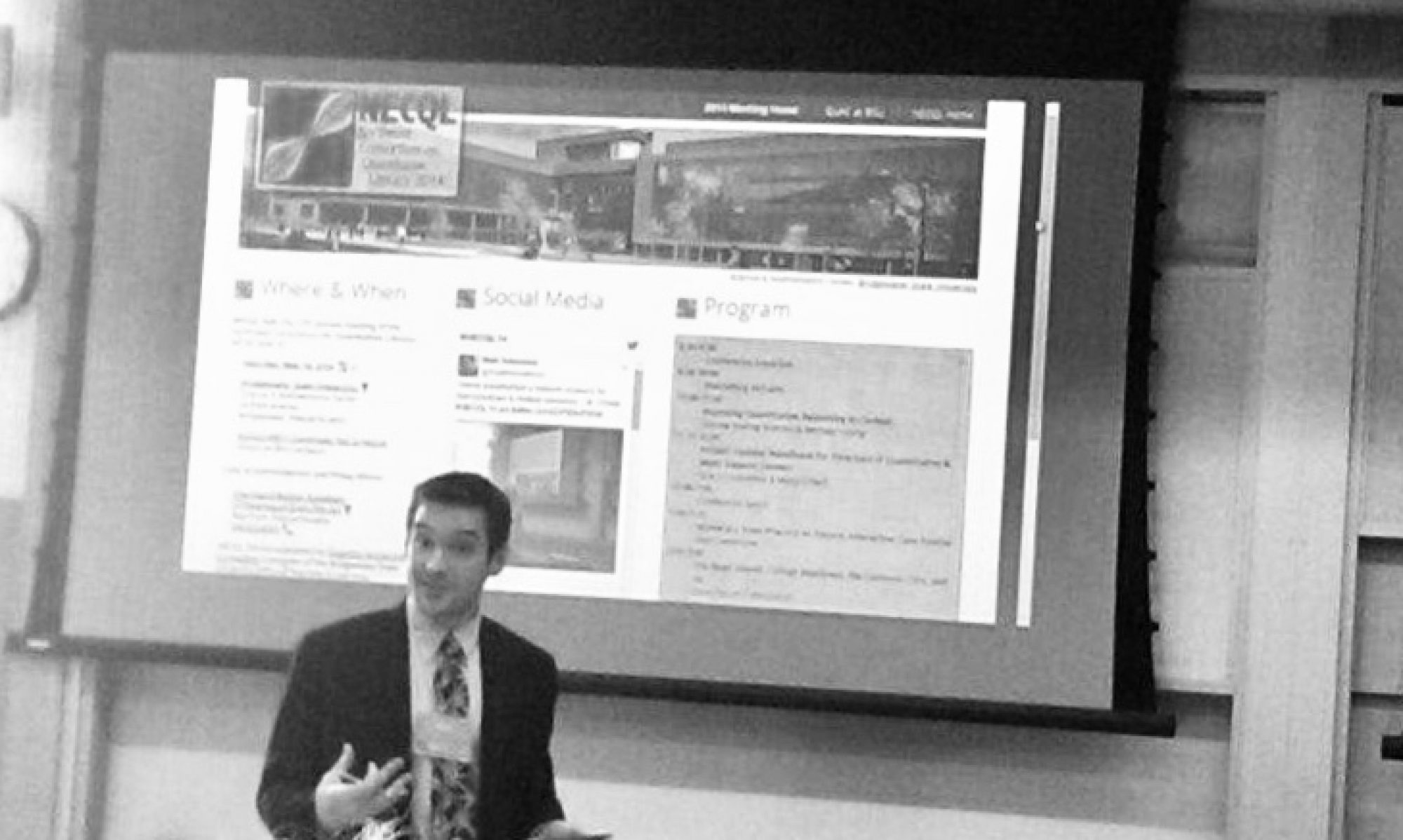The older I get, the more time I wish I’d spent with combinatorics. That was true when I got tapped to teach our undergraduate combinatorics course for a semester in 2011 – there, I was rescued by the grace of a colleague and an excellent, inquiry-based text. And it’s true again now: I’ve got a counting problem in a research project that I just can’t crack. So I’m opening it up to the internet, here first and on MathOverflow later if needed. Continue reading “Of Cats and Combinatorics (Help!)”
Grow Up, Branch Out (Transcript)
This is a transcript of the interactive video Grow Up, Branch Out: Achieving and Assessing Quantitative Literacy for the 21st Century, produced for the Massachusetts Department of Higher Education in 2019.
The MPG Illusion, Revisited
Why are we seemingly hard-wired to get the above problem incorrect? Two reasons. Continue reading “The MPG Illusion, Revisited”
Grow Up, Branch Out: Quantitative Literacy for the 21st Century
This interactive video and set of resources was developed to support a faculty workshop offered by the Massachusetts Department of Higher Education in 2019. Special thanks to Robert Awkward, DHE’s Director of Learning Outcomes Assessment, for organizing and providing financial and logistical support for these workshops; and to Mary-Ann Winkelmes, Director of Teaching and Learning at Brandeis University, for co-facilitating the workshops by engaging participants in designing transparent assignments. Continue reading “Grow Up, Branch Out: Quantitative Literacy for the 21st Century”
Anti-Numeracy: Valid, But Not Okay
The only thing worse than our pervasive cultural misbeliefs about numeracy is when mathematicians give them cover.
Here’s an example, with author omitted. (These gags are ubiquitous and I’m not trying to “cancel” anyone!)
I am a trained mathematician right up until I have to calculate a restaurant tip. (In reply to the below)
https://twitter.com/SusannaLHarris/status/1178782450958426114
And while I know these are tongue-in-cheek funny jokes (so please don’t @ me), I have to ask: Who laughs? Who’s supposed to laugh? And what happens when they do?
Boom, Bust, Hockey Stick: Unanimity in the U.S. Supreme Court since 1945
Earlier this month, I did a preliminary assessment of Andrew Torrez’s speculation on the Opening Arguments podcast that the Roberts Court has ushered in a new era of polarization on the U.S. Supreme Court. The answer, looking at 20 years of history, seemed to be no. A wider view of 75 years of history, meanwhile, suggests the answer is… still no. The Roberts Court is not significantly more polarized in its merit case votes than any other Court in this history.

But, the data suggest two interesting trends in Supreme Court unanimity over the past 75 years: a steady boom-and-bust cycle about every decade, and a significant Roberts Court uptick in the second derivative suggesting that year-over-year, the consensus about consensus may be disappearing.
Continue reading “Boom, Bust, Hockey Stick: Unanimity in the U.S. Supreme Court since 1945”
Is Supreme Court Unanimity Vanishing?
On the most recent episode of Opening Arguments, the terrific legal and current affairs podcast that also happens to have excellent taste in WordPress themes, host Andrew Torrez posed an interesting statistical question (around 56:00). Are Supreme Court decisions growing increasingly polarized? Continue reading “Is Supreme Court Unanimity Vanishing?”
The Visual Syllabus (2019 National IBL Conference Poster)
“If my teaching is ‘different,’ my syllabi should be too.”
About three years ago, concomitant with my wholesale switch to standards-based grading, I also set aside the well-worn course syllabus template that I’d used for all my courses and set out, from a blank page, to design a syllabus my students would find worth reading. The result is a colorful, four-page visual syllabus that is now the key artifact of my teaching. Continue reading “The Visual Syllabus (2019 National IBL Conference Poster)”
Numbers That I Used to Know
This parody song was written and performed in 2012 for the retirement of my BSU colleague Professor Tom Moore – number theorist, mathematical problem-solver extraordinaire, and a pillar of the Bridgewater mathematics department for more than forty years.
Building Quantitative Literacy Across the Curriculum (AMCOA 2019)
Building Quantitative Literacy Across the Curriculum
AMCOA Annual Assessment Conference
Massachusetts Department of Higher Education
April 19, 2019 – Marlborough, Mass.
Continue reading “Building Quantitative Literacy Across the Curriculum (AMCOA 2019)”
